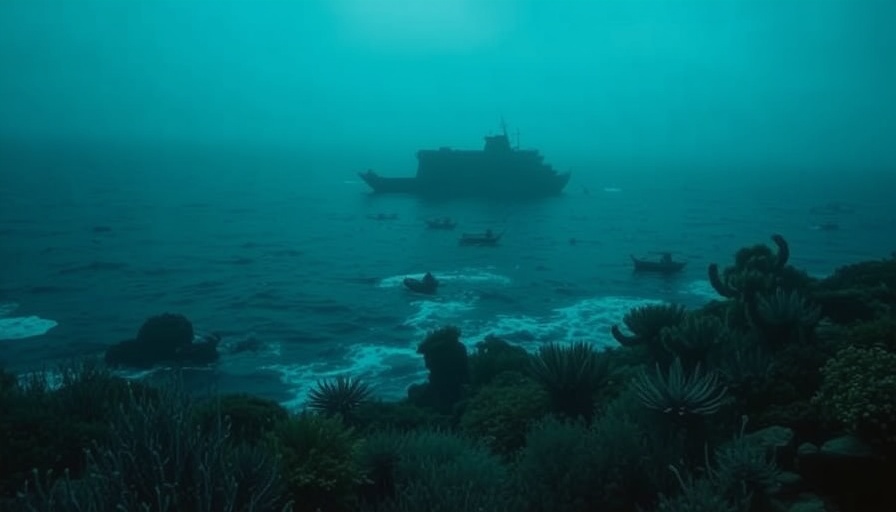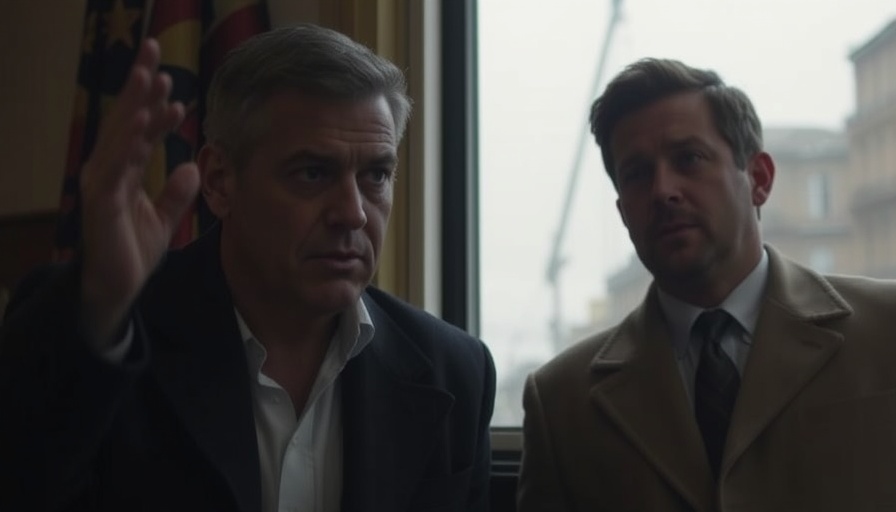
The Gripping True Story Behind Ron Howard’s *Eden*
In his latest cinematic venture, director Ron Howard takes audiences on a thrilling journey into the past with *Eden*, starring Jude Law and Sydney Sweeney. The inspiration for the film emerges from a real-life drama that unfolded on the remote Floreana Island in the 1930s, a narrative that encapsulates chaos, betrayal, and abounding mystery—the essence of a story worthy of Agatha Christie’s pen.
Stranger than Fiction: The Galápagos Affair
The tale behind *Eden* is steeped in intrigue and violence, remembered as “the Galápagos Affair.” Abbott Kahler, whose book *Eden Undone* chronicles these events, likens this historical conundrum to a tabloid sensation from 1941: “Was Dr. Ritter, with his steel teeth, poisoned in paradise? The question alone ignites curiosity. On a surface level, the Galápagos Islands conjure images of serene beauty, but Floreana’s rugged landscape became a backdrop for dark conspiracies and unsolved mysteries.
The Allure of an Untamed Land
The Galápagos Islands are often seen as the last frontier of untouched nature, but Floreana’s history reveals a different narrative. Previously a haven for pirates, it drew people like Friedrich Ritter, a German physician who set out to create a new life aligned with radical philosophies. Driven by dreams of escape and a desire for self-reliance, Ritter and his partner Dore Strauch arrived full of hope for an idyllic existence, unaware of the chaos that awaited them.
Characters Shaped by Their Environment
Ritter, a strict vegetarian who replaced his teeth with steel implants, was emblematic of the audacious, unconventional thinkers drawn to Floreana. His stern demeanor towards Strauch, who battled multiple sclerosis, foreshadowed the upheaval to come. The arrival of an American scientific expedition added more color to this already vibrant tableau, pointing out the universal human impulse towards survival amid adversity.
The Darkness Within Paradise
What began as a quest for utopia spiraled into an atmosphere of blackmail, secret romances, and paranoia. The social dynamics between characters such as ‘Baroness Eloise,’ a figure of both allure and danger, introduced an aspect of psychological tension in a setting starkly contrasting the idyllic images often associated with tropical paradises.
Lessons from the Past: Reflections on Human Nature
As history reveals, the deeper the desire to break from societal norms, the more fraught the journey can be. Howard’s *Eden* encapsulates these timeless themes, drawing parallels between early 20th-century existential dilemmas and contemporary societal pressures. Kahler notes, “I’ve made a career writing about stranger-than-fiction true stories, and this is, by far, the strangest one.” Like the Galápagos itself, the story dares us to confront our own realities.
Why *Eden* Resonates Today
The stunning visuals of *Eden* may captivate viewers, but the true essence lies within its moral complexities. In a time where individualism and community intersect, the film serves as a reminder of the struggles inherent in human relationships and the pursuit of belonging. Original character arcs resonate especially with digital nomads who constantly navigate aspirations and realities in their own quests for a 'paradise'.
Steps to Explore the Galápagos
For those intrigued by the *Eden* narrative and the real-life Galápagos story, a visit to these rugged islands may spark personal reflections on the human condition. With sustainable travel methods focusing on eco-tourism, it is essential to explore responsibly and appreciate the delicate ecosystems that shaped this story. Pack minimally, tread lightly, and immerse in the stories—the wilderness speaks of a past that echoes in today’s global landscape.
As we reflect on *Eden*, let us remember that history offers lessons not only in tragedy but also in resilience. Discover more about sustainable travel practices to honor these incredible locations while preserving their beauty for future generations.
 Add Row
Add Row  Add
Add 




Write A Comment